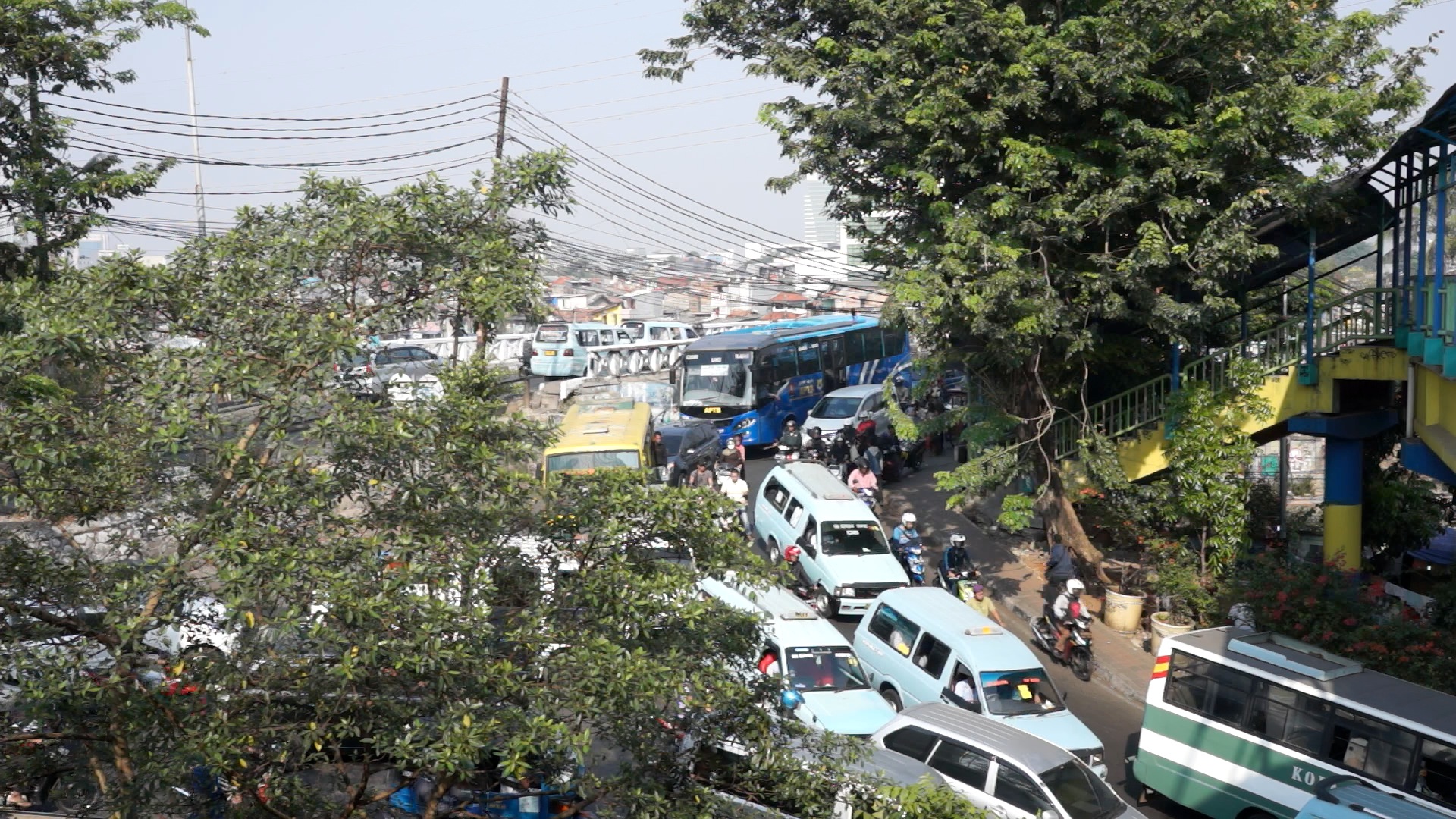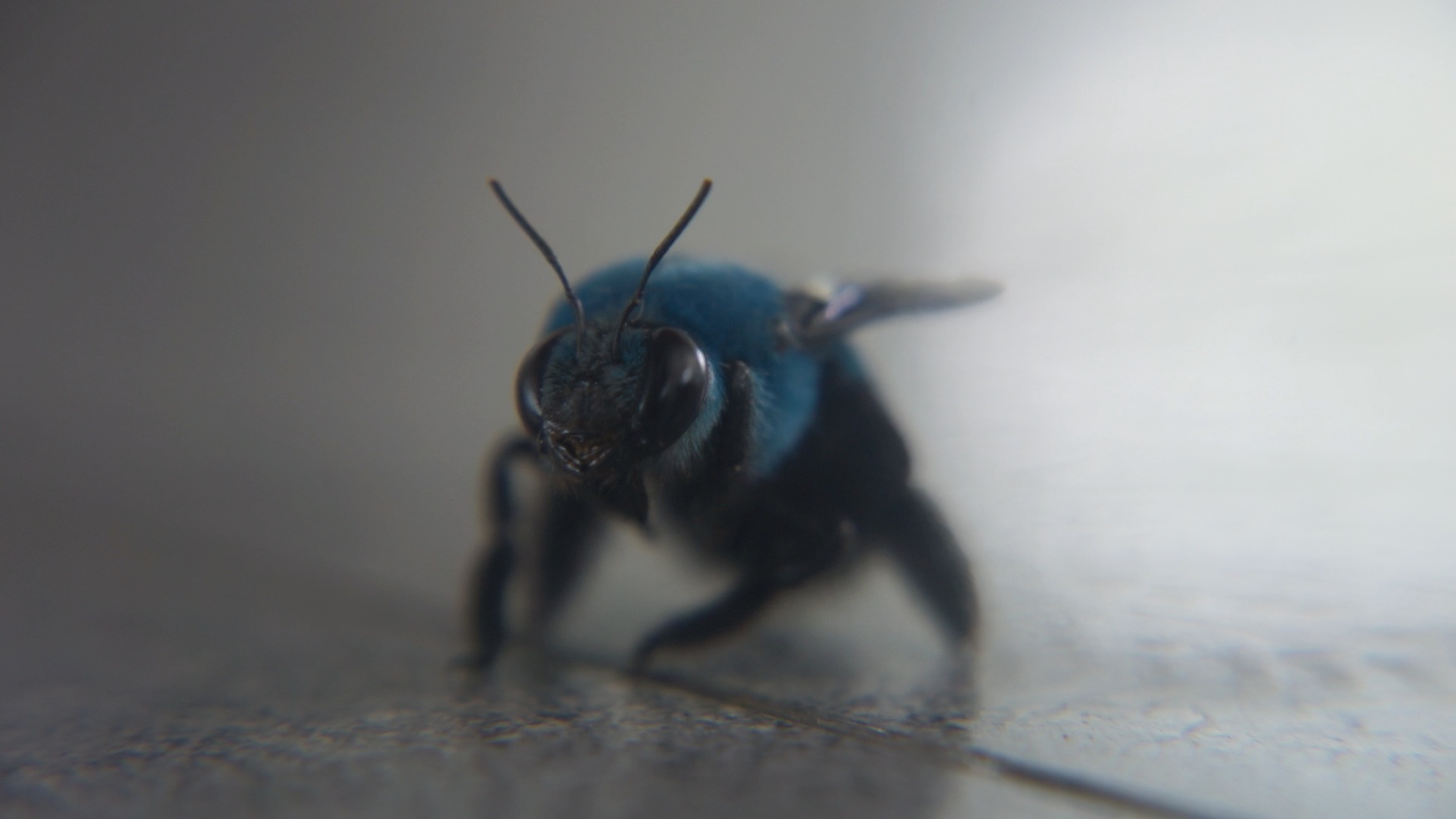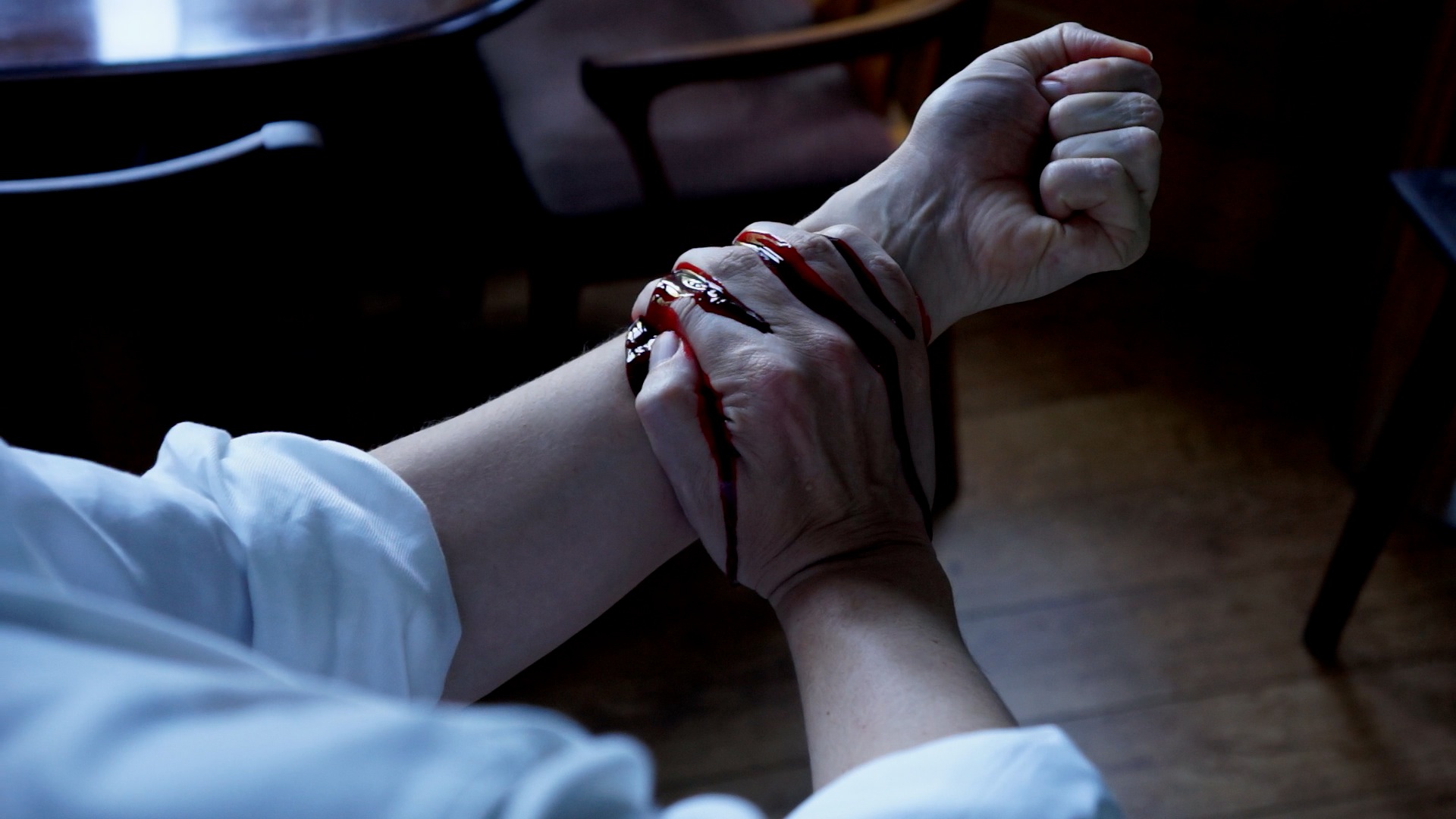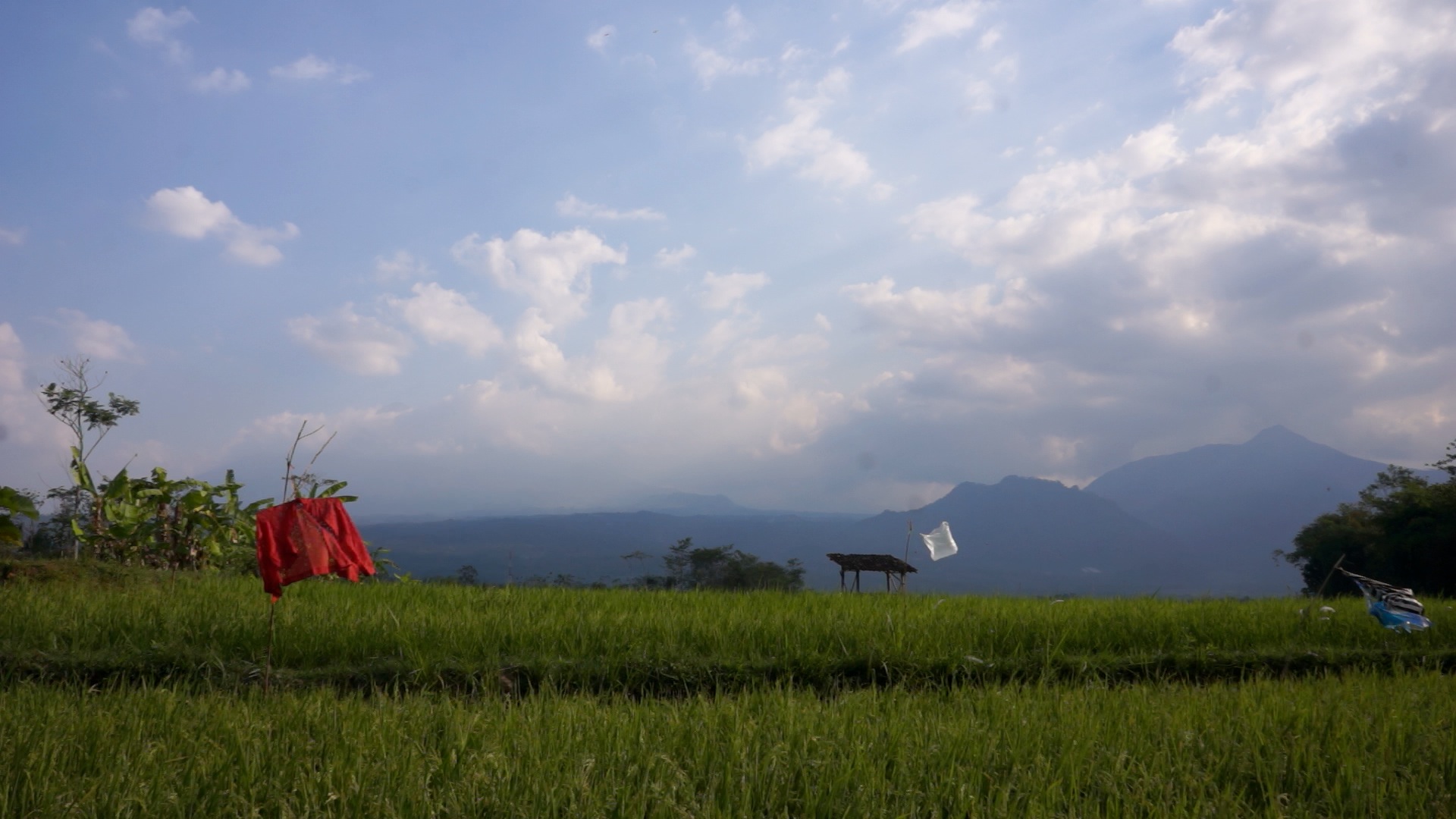Abdo Rinbo (Je est un autre)
2015
HD Video / Stereo
Duration: 01:25:00
A number of works I have made take as their starting point a small incident or detail, often overlooked, in the life or work of someone otherwise of immense stature and influence, whether that be a short stay on the Kent coast by Marcel Duchamp in 1913, or the recipe for black cake written by the American poet Emily Dickinson. This ambitious work, commissioned by the Jakarta Biennale, and filmed in various locations in as well as Java, London, Paris, and Charleville-Mézières, is based on a little-known incident in the life of French poet Arthur Rimbaud.
On 10 June 1876, Rimbaud left the Dutch port of Den Helder on a three-masted steamship, the Prins van Oranje, his eventual destination Batavia, or as it is now known, Jakarta. He travelled as a recent conscript of the Dutch Colonial Army, a brutally-efficient mercenary force which had been crushing small revolts that had threatened to disrupt the flow of produce from the Dutch East Indies. Upon arrival in Batavia 10 days later, Rimbaud and the other recruits remained in local barracks for a further 10 days before boarding a steamer to Semarang; there followed a train to Tungtang before a march to Salatiga where his battalion was garrisoned. On the morning of 15 August, nearly two weeks after his arrival, Private Rimbaud failed to attend chapel; that evening he was absent from roll call, also. Rimbaud had deserted. Disappeared.
Abdo Rinbo (Je est un autre) is not so much about the fact of Rimbaud’s disappearance — especially as so little is known of it — as it is a reflection upon what it is to disappear. Indeed, who had disappeared? For whom was the Dutch Colonial Army searching? Who was Rimbaud during this period? The former Communard was now a mercenary soldier in a brutal imperialist force. Can we even describe him as a poet, as he had already written what was to be his last work (and maybe he knew this already)? As he had written in a letter some five years previously, ‘Je est un autre’, I is an other, and we are all of us something other than ourselves. Through a series of personal reflections, and material gathered throughout Java, this film considers who this other might be.
While the film might seem to concern itself with an obscure and distant historical event, it actually has much to say about what is taking place in our own time. The then-British PM David Cameron is filmed on a TV screen in Jakarta speaking of the ‘swarms’ of people trying to enter the country — this was a time of crisis when many European countries had closed their borders to refugees from the south — and so using the very same language which had been used to dehumanise the Communards all those years previously, a language adopted by them, Rimbaud too, and adopted here visually in the film, with close-up images of insects crawling over and within orchids and other exotic flowers. Colonialism and migration, fear and religion, desire and political revolt: these are some of the themes of the film, of Rimbaud’s time and of our own.
The film also shows the making of a shadow puppet of Rimbaud which I commissioned especially, and which was shown alongside the film, the projected moving images casting the puppet’s shadow upon another screen.
2015
HD Video / Stereo
Duration: 01:25:00
A number of works I have made take as their starting point a small incident or detail, often overlooked, in the life or work of someone otherwise of immense stature and influence, whether that be a short stay on the Kent coast by Marcel Duchamp in 1913, or the recipe for black cake written by the American poet Emily Dickinson. This ambitious work, commissioned by the Jakarta Biennale, and filmed in various locations in as well as Java, London, Paris, and Charleville-Mézières, is based on a little-known incident in the life of French poet Arthur Rimbaud.
On 10 June 1876, Rimbaud left the Dutch port of Den Helder on a three-masted steamship, the Prins van Oranje, his eventual destination Batavia, or as it is now known, Jakarta. He travelled as a recent conscript of the Dutch Colonial Army, a brutally-efficient mercenary force which had been crushing small revolts that had threatened to disrupt the flow of produce from the Dutch East Indies. Upon arrival in Batavia 10 days later, Rimbaud and the other recruits remained in local barracks for a further 10 days before boarding a steamer to Semarang; there followed a train to Tungtang before a march to Salatiga where his battalion was garrisoned. On the morning of 15 August, nearly two weeks after his arrival, Private Rimbaud failed to attend chapel; that evening he was absent from roll call, also. Rimbaud had deserted. Disappeared.
Abdo Rinbo (Je est un autre) is not so much about the fact of Rimbaud’s disappearance — especially as so little is known of it — as it is a reflection upon what it is to disappear. Indeed, who had disappeared? For whom was the Dutch Colonial Army searching? Who was Rimbaud during this period? The former Communard was now a mercenary soldier in a brutal imperialist force. Can we even describe him as a poet, as he had already written what was to be his last work (and maybe he knew this already)? As he had written in a letter some five years previously, ‘Je est un autre’, I is an other, and we are all of us something other than ourselves. Through a series of personal reflections, and material gathered throughout Java, this film considers who this other might be.
While the film might seem to concern itself with an obscure and distant historical event, it actually has much to say about what is taking place in our own time. The then-British PM David Cameron is filmed on a TV screen in Jakarta speaking of the ‘swarms’ of people trying to enter the country — this was a time of crisis when many European countries had closed their borders to refugees from the south — and so using the very same language which had been used to dehumanise the Communards all those years previously, a language adopted by them, Rimbaud too, and adopted here visually in the film, with close-up images of insects crawling over and within orchids and other exotic flowers. Colonialism and migration, fear and religion, desire and political revolt: these are some of the themes of the film, of Rimbaud’s time and of our own.
The film also shows the making of a shadow puppet of Rimbaud which I commissioned especially, and which was shown alongside the film, the projected moving images casting the puppet’s shadow upon another screen.
















